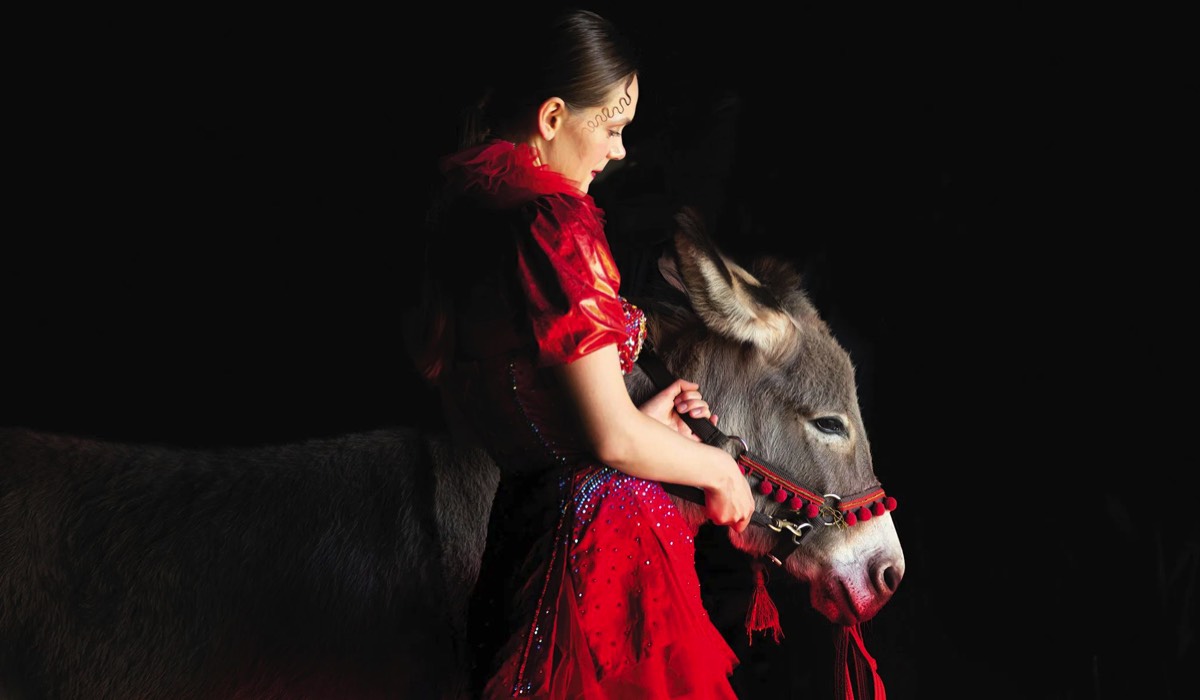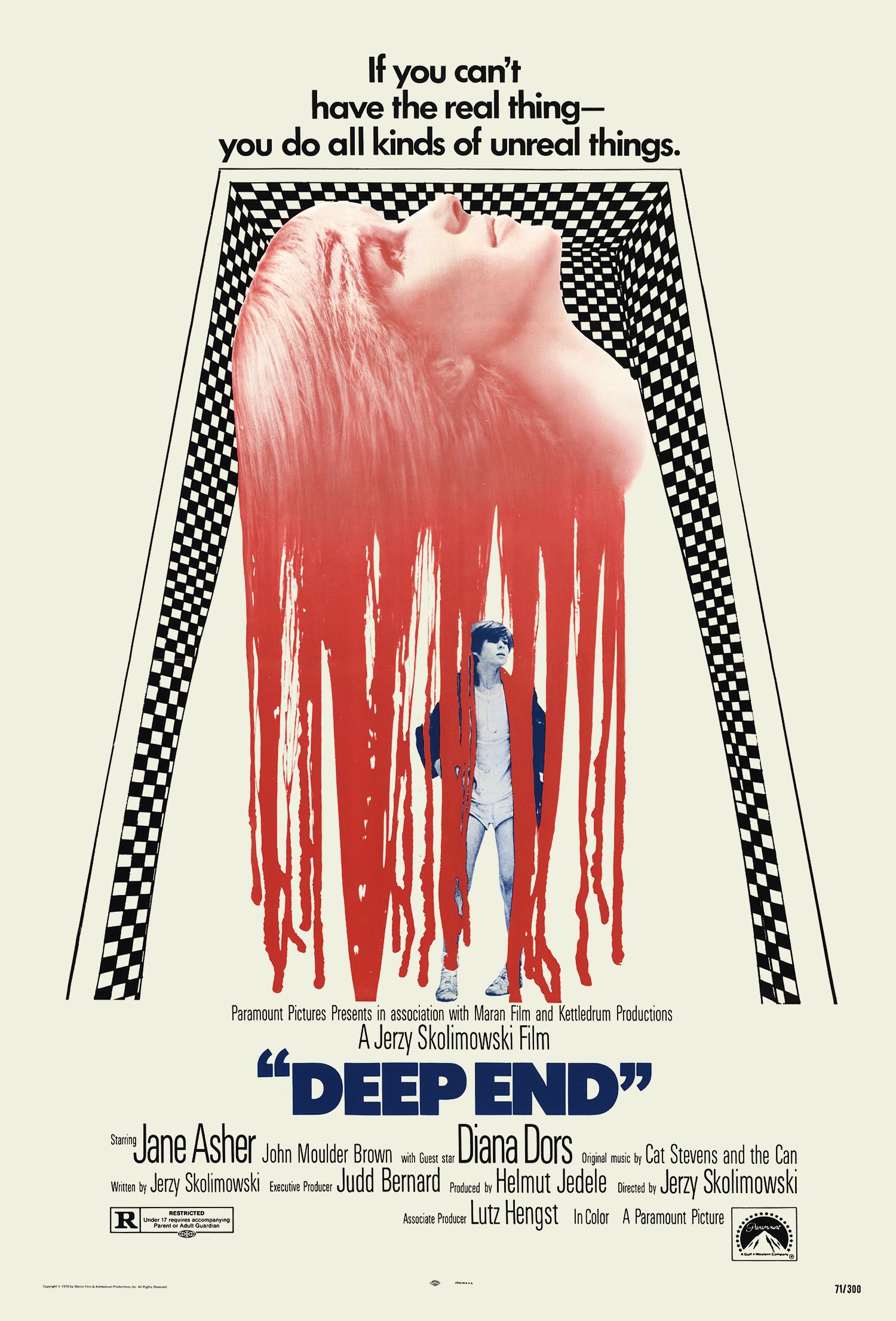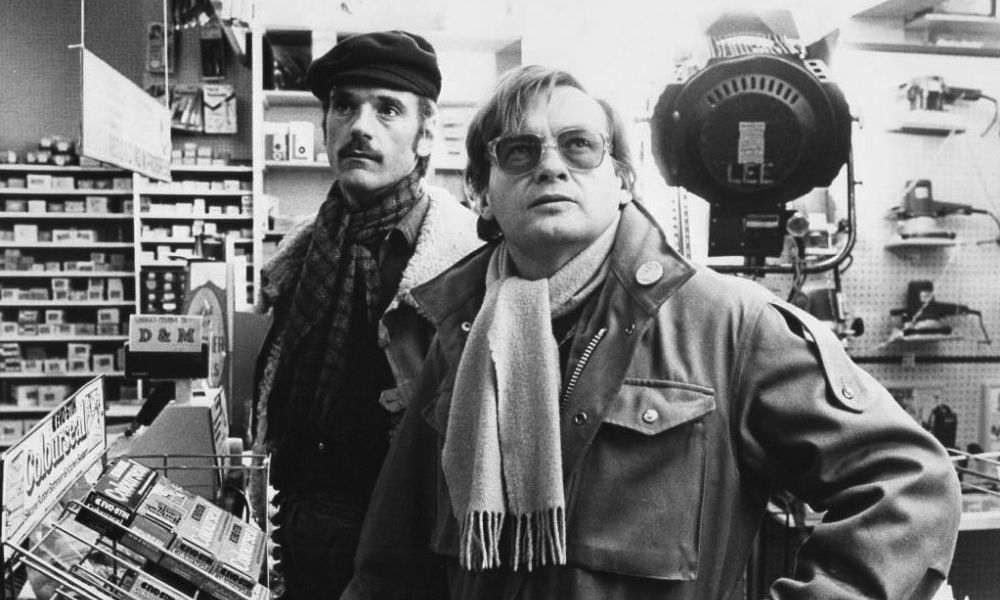"Skolimowski is endowed with visual imagination, genuine compassion for characters, and a near surrealistic sense of humor. He is one of only a few directors who have managed to pursue concurrently successful careers on both sides of the erstwhile Iron Curtain. He has written or collaborated on all his scripts and has appeared as an actor in several of his own films." - The Film Encyclopedia, 2012
Jerzy Skolimowski
Director / Screenwriter / Actor / Producer / Editor
(1938- ) Born May 5, Lódz, Lódzkie, Poland
(1938- ) Born May 5, Lódz, Lódzkie, Poland
Key Production Countries: UK, Poland, France, Italy
Key Genres: Drama, Thriller, Crime, Comedy, Comedy Drama, Romance
Key Collaborators: Barrie Vince (Editor), Joanna Szczerbic (Leading Actress), Stanley Myers (Composer), Michal Skolimowski (Leading Actor), Tadeusz Lomnicki (Leading Actor), Alan Bates (Leading Actor), Andrzej Kostenko (Screenwriter), Eva Piaskowska (Screenwriter), Adam Sikora (Cinematographer), Charly Steinberger (Cinematographer), John Hurt (Leading Character Actor), Andrzej Herder (Leading Character Actor)
Key Genres: Drama, Thriller, Crime, Comedy, Comedy Drama, Romance
Key Collaborators: Barrie Vince (Editor), Joanna Szczerbic (Leading Actress), Stanley Myers (Composer), Michal Skolimowski (Leading Actor), Tadeusz Lomnicki (Leading Actor), Alan Bates (Leading Actor), Andrzej Kostenko (Screenwriter), Eva Piaskowska (Screenwriter), Adam Sikora (Cinematographer), Charly Steinberger (Cinematographer), John Hurt (Leading Character Actor), Andrzej Herder (Leading Character Actor)
"Together with Roman Polanski, Jerzy Skolimowski is the most remarkable representative of the second generation of the Polish New Wave. Younger than Wajda, Munk, or Kawalerowicz, these two did not share the hope for a new society after World War II. They are more skeptical filmmakers, to the point of cynicism at times. With Polanski, Skolimowski wrote Knife in the Water, which deals precisely with the relationship between two generations, after having also collaborated on the script of Wajda’s Innocent Sorcerers, one of the director’s rare attempts at portraying Poland’s youth." - Michel Ciment (International Dictionary of Films and Filmmakers, 2000)
"Emerging as one of the most original voices of the Polish New Wave that took form during the Sixties, Jerzy Skolimowski channeled his prodigious talents – as an actor, poet, writer, director, painter and art designer – into a series of visually intense and poetically structured films that capture the restless imagination of the postwar generation of filmmakers and filmgoers… Eventually choosing to leave Poland in 1967 after the draconian censorship of his politically outspoken Hands Up!, Skolimowski quickly established himself as a pioneering artist of the postwar European art cinema, creating such iconic films as The Shout and Deep End whose inventive approach to image and narrative are only just beginning to be fully appreciated." - Harvard Film Archive, 2011

EO (2022)
"His early Polish films were antiheroic and aggressively personal: they concern idiosyncratic outsiders played by himself. In Rysopis he is a student who suddenly decides to enlist in the army, and in Walkover a seasoned boxer who enters contests for novices. There is an odd mixture here of national anguish, wistful optimism about sex, and self-indulgent stylistic devices. But the films bristle with invention and Skolimowski’s own bitter romanticism." - David Thomson (The New Biographical Dictionary of Film, 2010)
"As long ago as 1968, Sight and Sound dubbed Jerzy Skolimowski ‘probably the most explosive and original filmmaker in Eastern Europe’. Which remains as valid a claim today, thanks to a career that’s been as wayward and inventive as any individual film. It falls into three phases. There was a mercurial start in the 1960s that saw him described as a one-man Polish New Wave. A lengthy period of enforced exile in Britain and the USA followed it. And finally, a return to Poland and triumphant proof, not least via the magnificent, Oscar™-nominated EO, that he’d lost none of the electrifying vigour that had so memorably charged his earlier work, or his abiding, deeply empathetic concern for people (and other creatures) trapped in the margins through no fault of their own." - Michael Brooke (BFI Player)
"Polish director whose films have garnered critical and festival plaudits, which has no doubt been considerable consolation for the fact that most of his work has failed to find a large audience. Stress and oppression are themes that run through his often starkly-lit stories - doubtless reflecting his own problems with the Polish authorities in the days before the old-style Communist regime was overthrown." - David Quinlan (Quinlan's Illustrated Guide to Film Directors, 1999)
"With the restlessness and resourcefulness of an accidental tourist that also brings Raul Ruiz to mind, Skolimowski has produced a body of work located on the margins between the surreal and the absurd. He evokes the often unsettling ambivalence of objects and, through improvisation and poetic association, seeks a layering of mood and meaning." - Bruce Hodsdon (Senses of Cinema, 2003)
"When examining the films of Jerzy Skolimowski, it seems he enjoys probing loner characters with unusual obsessions. Out of place in their surroundings, much like immigrants in a new land, these seemingly benign, nonthreatening kooks often turn out to be dangerous - even deadly - to those they befriend. Considering Skolimowski was born in Poland (he cowrote Knife in the Water (1962) with Roman Polanski) yet made his most influential films elsewhere, such as England, it is a curious tendency." - Darryl Wiggers (501 Movie Directors, 2007)
"My films conceived from my original ideas are usually much better than my attempts to adapt literature. I tried that three times, and three times I failed." - Jerzy Skolimowski (Metrograph, 2023)
Selected Filmography
{{row.titlelong}}
GF Greatest Films ranking (★ Top 1000 ● Top 2500)
21C 21st Century ranking (☆ Top 1000)
S Martin Scorsese
21C 21st Century ranking (☆ Top 1000)
S Martin Scorsese
Jerzy Skolimowski / Favourite Films
...And the Fifth Horseman is Fear (1965) Zbynek Brynych, 8½ (1963) Federico Fellini, Ashes and Diamonds (1958) Andrzej Wajda, Citizen Kane (1941) Orson Welles, Fan-Fan the Tulip (1952) Christian-Jaque, Five Easy Pieces (1970) Bob Rafelson, Il Grido (1957) Michelangelo Antonioni, Last Tango in Paris (1972) Bernardo Bertolucci, Pierrot le fou (1965) Jean-Luc Godard, Steamboat Bill, Jr. (1928) Buster Keaton & Charles Reisner.
Source: Sight & Sound (2023)
...And the Fifth Horseman is Fear (1965) Zbynek Brynych, 8½ (1963) Federico Fellini, Ashes and Diamonds (1958) Andrzej Wajda, Citizen Kane (1941) Orson Welles, Fan-Fan the Tulip (1952) Christian-Jaque, Five Easy Pieces (1970) Bob Rafelson, Il Grido (1957) Michelangelo Antonioni, Last Tango in Paris (1972) Bernardo Bertolucci, Pierrot le fou (1965) Jean-Luc Godard, Steamboat Bill, Jr. (1928) Buster Keaton & Charles Reisner.
Source: Sight & Sound (2023)
Jerzy Skolimowski / Fan Club
Adrian Martin, Benjamín Naishtat, Richard Combs, B. Kite, Shinji Aoyama, Richard T. Jameson, Emmanuel Carrère, David Sterritt, Leonard Maltin, Olivier Père, Filipe Furtado, José Luis Guarner.
Adrian Martin, Benjamín Naishtat, Richard Combs, B. Kite, Shinji Aoyama, Richard T. Jameson, Emmanuel Carrère, David Sterritt, Leonard Maltin, Olivier Père, Filipe Furtado, José Luis Guarner.
"Fan Club"
These film critics/filmmakers have, on multiple occasions, selected this director’s work within film ballots/lists that they have submitted.
These film critics/filmmakers have, on multiple occasions, selected this director’s work within film ballots/lists that they have submitted.


